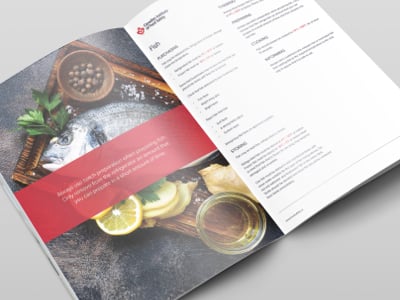
In 2017, a Norovirus outbreak in Quebec was causing hundreds of people to fall ill. After a thorough investigation, the source of the outbreak was determined: raspberries from Harbin Gaotai Food Co Ltd., a supplier from China, were linked to the outbreak. Recalls were put out in Canada for berries supplied from Harbin Gaotai, and the recalls went as far back as July 2016. Unfortunately, raspberries from the supplier continued to come into Canada due to illegal repackaging and relabelling of the products.
Frozen berries that were grown in China were being shipped by Harbin Gaotai to a packing plant in Chile. A company called Frutti di Bosco repackaged the frozen berries, rebranding them as premium organic berries from Chile. These berries were shipped to major Canadian cities like Vancouver and Montreal. It is estimated that between 2014 and 2016, $12 million worth of mislabelled raspberries were imported to Canada. This fraud continued to put Canadians at risk of contracting and falling severely ill with Norovirus.
What is norovirus?
Norovirus is the leading cause of food-borne illnesses and hospitalizations in Canada. The virus is extremely contagious and can spread easily from person to person. The virus causes gastroenteritis and symptoms typically begin within 24 to 48 hours of exposure. The main symptoms include:
- diarrhea
- stomach cramps
- nausea, vomiting
- headache, muscle aches
- fever, chills
- fatigue
A major concern about Norovirus is that someone can have the virus and not have any symptoms. Even without symptoms, a person is still infectious and can spread the virus to other people.
One of the most common routes of infection is the ingestion of contaminated food or water due to poor hygiene practices. This is how people were able to contract Norovirus by consuming the contaminated raspberries.
For more information about Norovirus click here.
Food labelling and food safety
The Norovirus outbreak illustrates how serious food-borne illness outbreaks can be, especially for those who are in high-risk groups. However, the outbreak also points to the importance of food labelling when it comes to food safety.
The food industry is spread throughout the world and involves the export and import of a wide variety of food items. Food businesses can purchase and use food products that are not from the country they are operating in. It is essential that food products are labelled properly to ensure that food businesses know what they are getting, where it comes from and what they are serving to their customers. There are a wide range of safety issues when it comes to mislabelling, particularly allergic reactions and difficulties with tracing food-borne illness outbreaks.
Mislabelling products is not only fraud, it puts customers at risk. The Canadian Food Inspection Agency has stated it will be conducting an investigation into this issue to ensure that Canadians are protected and their food is safe to purchase and consume.




